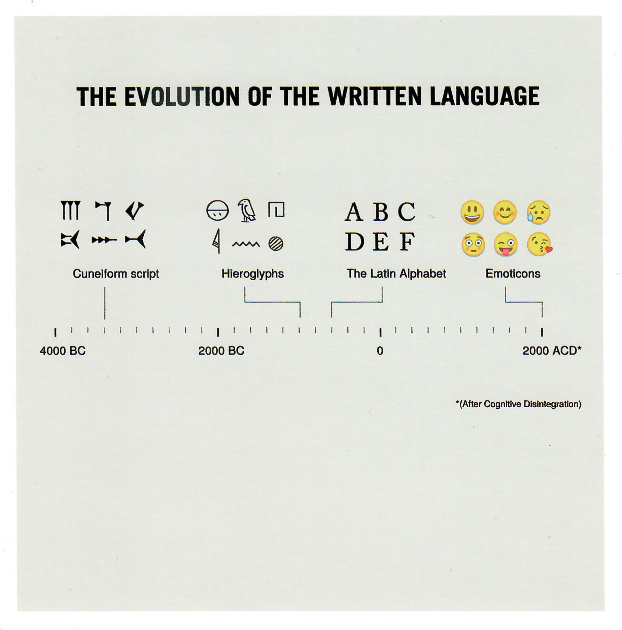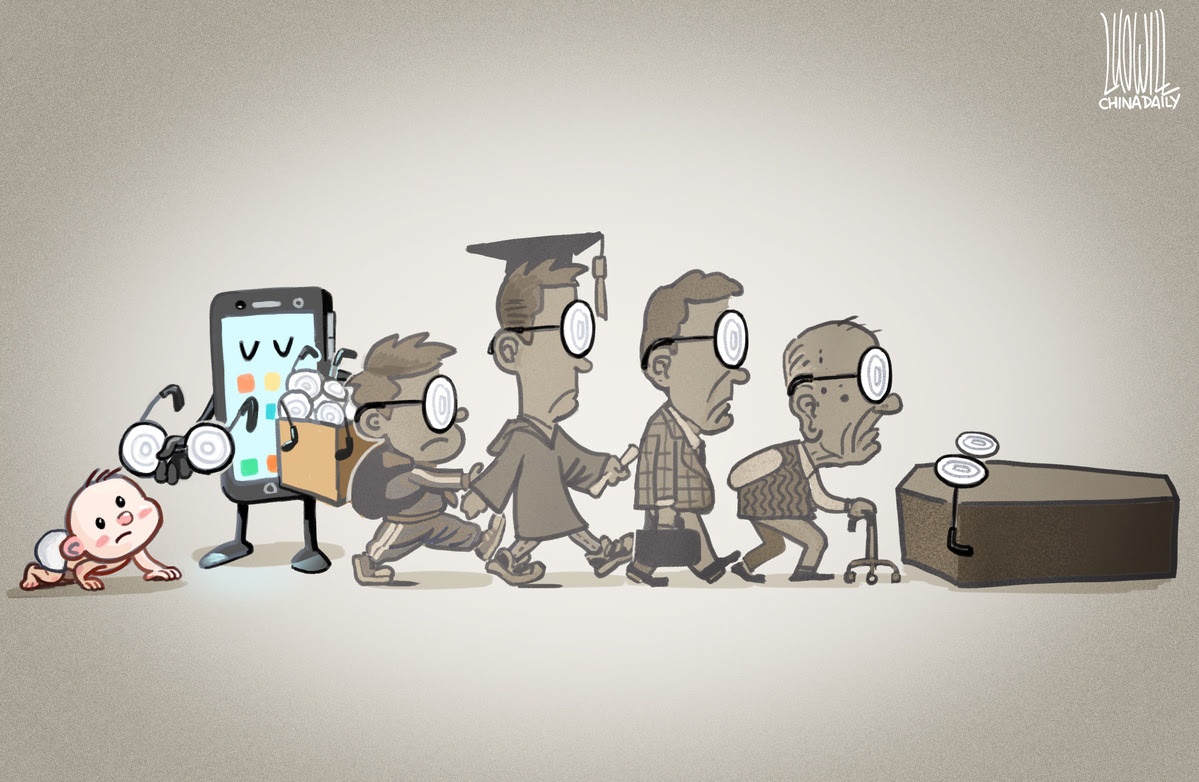Archive for July, 2019
The "Mosquito" in Philadelphia
Michaela Winberg, "Sonic Devices Target Teenagers In Philadelphia", NPR 7/5/2019:
WINBERG: If you look at the rec center building at Philadelphia's East Poplar Playground, you'll see a small beige speaker screwed into the wall. Every night at 10 p.m., that tiny speaker activates. And for eight hours, it plays nonstop. Here's what it sounds like.
(SOUNDBITE OF STATIC)
WINBERG: Didn't hear anything? If so, it's likely you are not between the ages of 13 and 25. That's the age group this sound is targeted toward. As we age, some of the cells in our ears start to die off. So when we get older, we have trouble hearing higher-frequency noises like the one that this device plays.
Philadelphia resident Lamar Reed is 17, and he hears the noise loud and clear.
LAMAR REED: It's so loud. Like, it can – like, what if it damages our ears or anything like – something like that?
WINBERG: It's called the Mosquito, and it's an acoustic deterrent device, technology used to keep humans or animals away from a designated area. It's usually used by law enforcement or the military. The Mosquito was manufactured by Vancouver-based Moving Sound Technologies. Michael Gibson is the company's president and says he has worked with about 20 parks departments in cities around the country to install his devices.
Read the rest of this entry »
Beyond within
Matt Wilstein, "Kathy Griffin Calls CNN’s Jeff Zucker a ‘Pussy’ for Caving to Trump", Daily Beast 7/2/2019 [emphasis added]:
Griffin tells ‘The Last Laugh’ podcast that the CNN president tried to limit her to one Trump joke per hour during 2016’s New Year’s Eve special before firing her the next year. […]
They had such a good relationship at one point that Zucker even hired Griffin to roast him at an event where he was receiving an award. But as soon as President Trump tweeted that she should be “ashamed of herself” for posing with his mock-severed head, Zucker kicked her to the curb.
“I guess the part that sort of stuns me to this day is, number one, that photo, whether you like it or not, was absolutely beyond within the parameters of the First Amendment,” Griffin says. “So people that think I broke the law are misinformed. Jeff knows that.”
“And I know this is going to sound silly, but I kind of think Jeff owes me an apology,” she continues. “Seriously, I didn’t do anything wrong.”
Read the rest of this entry »
Mycological meandering: vernacular variora
The surname of the mayor of Prague is Hřib (Zdeněk Hřib [b. May 21, 1981]):
"Zdeněk Hřib: the Czech mayor who defied China"
By refusing to expel a Taiwanese diplomat, the Prague mayor has joined the ranks of local politicians confronting contentious national policies
The surname Hřib, though unusual, struck me as familiar. Jichang Lulu observes:
Hřib is the regular Czech reflex of the Proto-Slavic source of, e.g., the Russian and Polish words for "mushroom" (гриб, grzyb). The Czech form, however, has a more specific meaning (certain mushrooms, e.g., Boletus). On the other hand, the further origin of Slavic gribъ has long been a matter of much debate, and I'm not aware of a generally accepted Proto-Indo-European (or other) etymology.
That set me to wondering whether there are cognates in other IE branches.
Read the rest of this entry »
Quotation query
The following English-language quotation is widely (though vaguely) attributed to Montaigne –see also here. But as far as I can tell, he never wrote the French equivalent:
Whenever a new discovery is reported to the scientific world, they say first, ‘It is probably not true.‘ Thereafter, when the truth of the new proposition has been demonstrated beyond question, they say, ‘Yes, it may be true, but it is not important.‘ Finally, when sufficient time has elapsed to fully evidence its importance, they say, ‘Yes, surely it is important, but it is no longer new.‘
Can anyone provide a citation to the original, whether from Montaigne or someone else?
Profiteer rolls
 Seen on a buffet table in Glasgow: "Profiteer Rolls" for "Profiteroles".
Seen on a buffet table in Glasgow: "Profiteer Rolls" for "Profiteroles".
There are a fair number of other examples Out There, but not enough to merit a separate dictionary entry, much less to eclipse the original, as in the case of Jerusalem Artichokes.
Read the rest of this entry »
Which justifies what?
Chelsea White, "Does people power make a difference? The truth about protests", The New Scientist 6/17/2019 [emphasis added]:
Hundreds of thousands of people filled the streets of Hong Kong on 9 June to protest a government plan to allow extraditions to mainland China. The demonstrations have continued regularly since, with seas of protesters surrounding a government building and preventing law-makers from meeting about the proposed law. […]
One way to bring attention to a cause is to disrupt the hum of normal life. In April, climate protesters Extinction Rebellion had success with this method, bringing some transport hubs in central London to a standstill by blocking the streets with people and gluing themselves to trains.
The movement quickly gained attention from the press and attracted new supporters, partly thanks to social media. But it also drew criticism from people who felt the inconvenience didn't justify the cause.
Read the rest of this entry »
Amazing things you can do with the Japanese writing system
Hanasaki, a curious term, depending on how you read and interpret it: "flower blooming" > "scab"
A Japanese correspondent asked me the following set of questions (below, after the page break) about the name of a Yosakoi-Sōran dance group. I'm not sure what the meaning of "Yosakoi" is, other than that it is the designation of a festival in Kochi Prefecture where this type of dancing originated in the early 90s. I've watched a few videos of Yosakoi-Sōran dance and find it fascinating and stimulating because it is extremely energetic and combines traditional Japanese dance moves with contemporary Western-influenced street dance routines. It is accompanied with rhythmic beating of naruko 鳴子 ("clappers") and repeated shouts of "sōran そうらん" (with a long "o", i.e., "ō"). I'm not certain what that means either, since there are many homophonous expressions with quite different meanings; one that might be applicable here is 騒乱, meaning "disturbance; riot; mayhem" for the uninhibited, sweeping gestures characteristic of the dance. More likely, though, it is derived from the chant of fishermen to encourage themselves as they went about their work of hauling nets, pulling ropes, and so forth, in which case it would perhaps mean roughly "that's right" or "like that".
N.B.: When the Japanese correspondent says "Chinese symbols", he seems to mean just "Chinese characters", i.e., kanji.
Read the rest of this entry »


